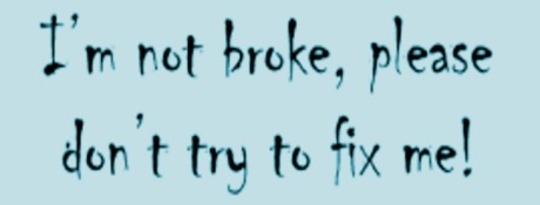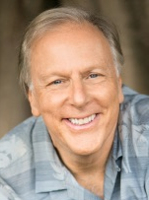
It's tempting to want to fix others and tell them how to live. But you have no idea how someone else should live. It's hard enough to figure out how you should live — so how could you even begin to know someone else's right path?
Help others if you can, but don't try to fix them. There is a big difference between helping and meddling. No one likes to be bugged, bossed, or altered to suit your purposes; they want to be loved and supported, not pushed. When tempted to help someone, meditate on What would be truly helpful here?
Judging Others, Judging Yourself
My mentor Hilda Charlton advised, "Before you tell your neighbor to pluck the weeds from her garden, be sure you have plucked the weeds from your own garden." She instructed each of us in the class to point a finger at someone else in the room. Then she asked us to notice how many fingers we had pointing at ourselves. The answer is three — each on our own hand.
When you point a finger at someone else, you have three pointing at yourself. Whenever you judge another person, you have already judged yourself, usually for the same perceived deficit. If you want to change the world, begin with yourself. When you are clear on your own path, you are in a far better position to help others get clear on theirs.
Telling Others How to Live: Not My Business!
 Hilda also taught us a mantra to use when we feel tempted to tell someone else how to live: Not my business. I used to have judgments about a chiropractor in my community who, in my opinion, had gotten caught up in a numbers and money game.
Hilda also taught us a mantra to use when we feel tempted to tell someone else how to live: Not my business. I used to have judgments about a chiropractor in my community who, in my opinion, had gotten caught up in a numbers and money game.
While at the outset of his practice he seemed genuinely interested in helping people, over time his focus shifted more and more to simply increasing his volume of patients and his income. I grumbled to myself about this doctor and occasionally criticized him when I spoke to others.
Then one day I realized that my adverse opinion affected him not in the least, and me in the most. So I decided to give him permission to live and breathe and practice as he was. Of course, he did not need my permission, for God had already granted that to him. I was the one who needed to be liberated.
Living In the Prison of Your Judgments?
A Course in Miracles tells us that when you keep someone else in a prison of your judgments about them, you have to stay in prison with them to be sure they don't escape. You must sit at the door of their cell to guard them.
So you are just as much in prison as the person you are incarcerating — actually, more so if they don't share your judgments about them. Let other people out of the jail of your criticism, and you will be free, too.
©2012 by Alan Cohen. All Rights Reserved,
Reprinted with permission of the publisher,
Hay House Inc. www.hayhouse.com
This article was adapted with permission from the book:
 Enough Already: The Power of Radical Contentment
Enough Already: The Power of Radical Contentment
by Alan Cohen.
In a world where fear, crisis, and insufficiency dominate the media and many personal lives, the notion of claiming contentment may seem fantastic or even heretical. In his warm, down-to-earth style, Alan Cohen offers fresh, unique, and uplifting angles on coming to peace with what is before you and turning mundane situations into opportunities to gain wisdom, power, and happiness that does not depend on other people or conditions.
Click here for more info or to order this book.
About The Author
 Alan Cohen is the author of the bestselling A Course in Miracles Made Easy and the inspirational book, Soul and Destiny. The Coaching Room offers Live Coaching online with Alan, Thursdays, 11 am Pacific time,
Alan Cohen is the author of the bestselling A Course in Miracles Made Easy and the inspirational book, Soul and Destiny. The Coaching Room offers Live Coaching online with Alan, Thursdays, 11 am Pacific time,
For information on this program and Alan’s other books, recordings, and trainings, visit AlanCohen.com
More books by this author




























